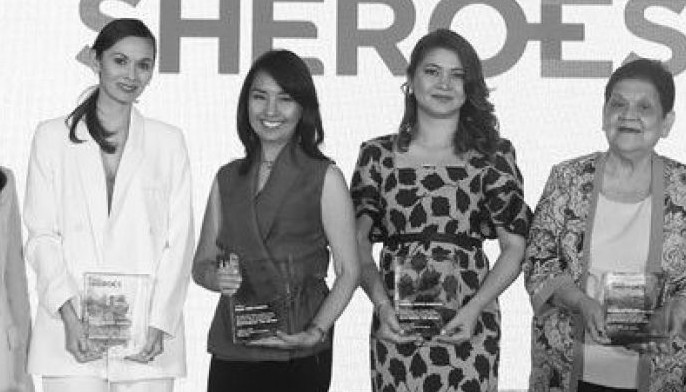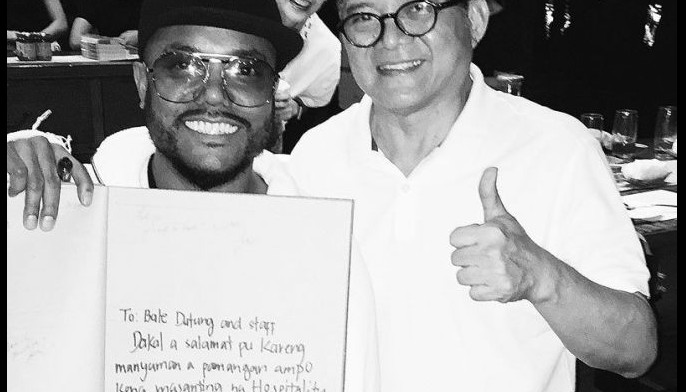Tzu Chi aids Syrian refugees
MANILA, Philippines - Before the start of the civil war, Syria’s population was one of the youngest and most educated in the region, with nearly all Syrian children enrolled in primary and secondary schools. Today, nearly 12 million Syrians have been forced from their homes, half of them children. More than two million school-aged children are unable to attend schools as a result.
The decline in education for Syrian children has been the sharpest in the history of the region. In Turkey, United Nations refugee agency UNHCR has registered and aided 1.7 million Syrian refugees, but by 2015, the Turkish government will have an estimated 2.5 million Syrian refugees, 80 per cent or more being women and children.
To help alleviate the burden on host countries, the international community has mobilized to provide relief and aid. However, even non-governmental support is becoming increasingly strained.
Non-government organizations (NGOs) working on the ground such as World Vision report: “Refugees need food, clothing, health assistance, shelter, and basic household and hygiene items. They need reliable supplies of clean water, as well as sanitation facilities. They’ll need warm clothing, heaters, and heating fuel to get through the coming winter months.”
Taking these recommendations into account, the Buddhist Tzu Chi Foundation continues to contribute to the humanitarian aid efforts for Syrian refugees, conducting food and non-food item distributions and providing financial subsidies to parents of school-aged children.
Tzu Chi’s non-food item distributions include fuel, the organization’s eco-blankets made from recycled PET bottles, and donated winter clothing.
In October 2015, the organization held several mid- to large- scale distributions, benefiting over 2,000 Syrian refugee families and individuals in Turkey. Since 2011, Tzu Chi has engaged in humanitarian aid for Syrian refugees living Turkey, providing cash/debit cards and food aid, benefiting more than 40,000 individuals as of June 2015.
The material aid and distribution is a way to help provide for Syrian refugees’ basic human needs; but there are still other needs that must be met, ones in the educational and psychosocial context.
According to NGOs such as the Jesuit Relief Services (JRS) and aid workers on the ground, refugee students often face discrimination and bullying. Worse, the many students who are not attending schools are oftentimes the primary or even sole provider for their family. The struggles faced by refugees, most especially the school-aged children, may have deep, long-lasting, and damaging implications on their psychosocial and emotional well-being.
Recognizing this, Tzu Chi’s aid work is developed around the basis of empowerment, dignity, and advocacy of integration.
In one example of Tzu Chi’s programs, school-aged Syrian refugees at the two campuses of the Menahal Primary and Secondary school are provided with financial aid to attend school. Their families are given financial subsidy so that the children can have the opportunity to go to school and not have to work. The students are also given stationery supplies and toys – luxuries by the refugees’ standards.
Although considered luxuries, for Tzu Chi volunteers, the supplies serve to show these children and their families that no matter what, they still have their dignity and are not forgotten.
Investment in education, which is oftentimes a forgotten factor in humanitarian assistance funding, is vital for integration. Economic, social, and cultural integration is, as directed by UNHCR during its Annual NGO Consultations in Geneva, the strongest and most durable long-term solution to the refugee crisis.
Just as empowerment and dignity are the basis of Tzu Chi’s investment in education, so too is the organization’s model for food and non-food item distributions.
Using Tzu Chi’s own 80/20 principle that teaches social responsibility – by consuming 80 per cent of what is normally consumed, 20 per cent can be saved and given to those less fortunate – Syrian refugees who are already struggling in their own personal ways not only are recruited as Tzu Chi volunteers to take part and lead in aid efforts, but donate to the even less fortunate, thereby empowering themselves to become givers rather than just receivers.
If integration is key in the long-term solution for the refugee crisis, opportunities must first be given. Aid work must be based around compassion and empathy, with utmost sincerity and respect, because the refugees are human beings who have been caught and trapped in an extreme and unfortunate situation.
Although Syrian refugees are foreigners in Turkey and will at least for the moment and the near future strain the country’s social infrastructure, they can, if given the support and opportunity, eventually prove to be an integral part of Turkey’s, and other host countries’, society.
- Latest



























